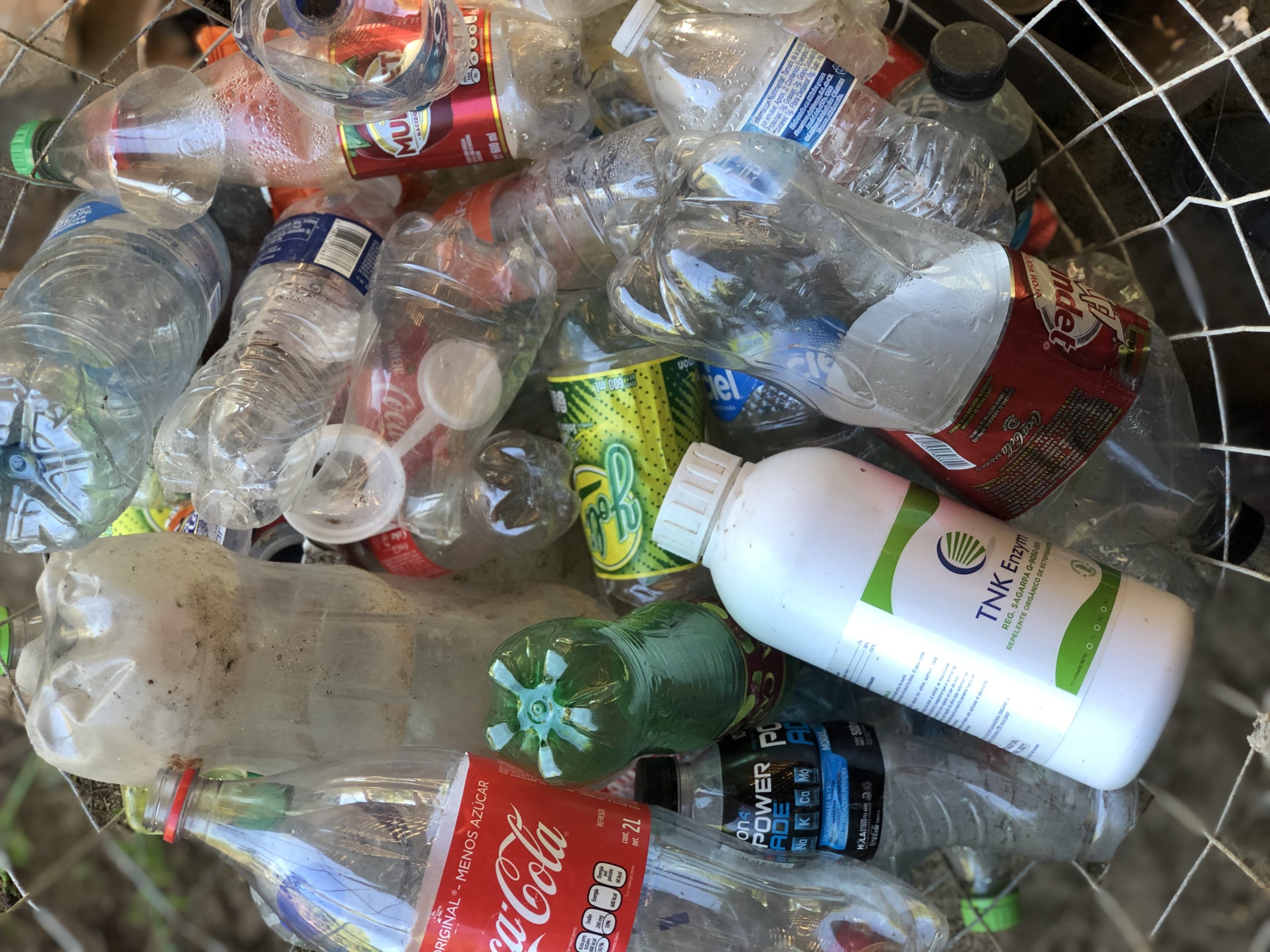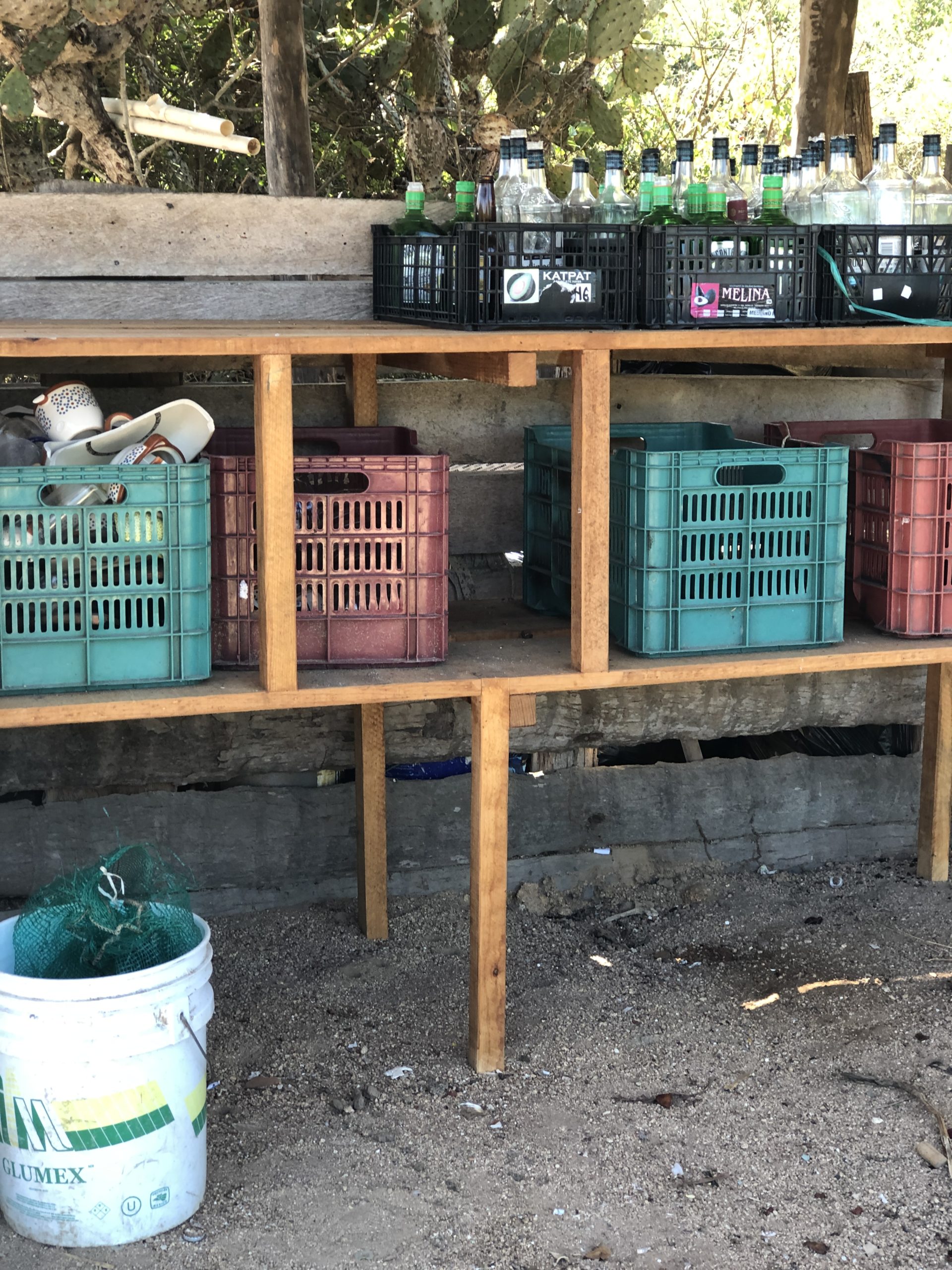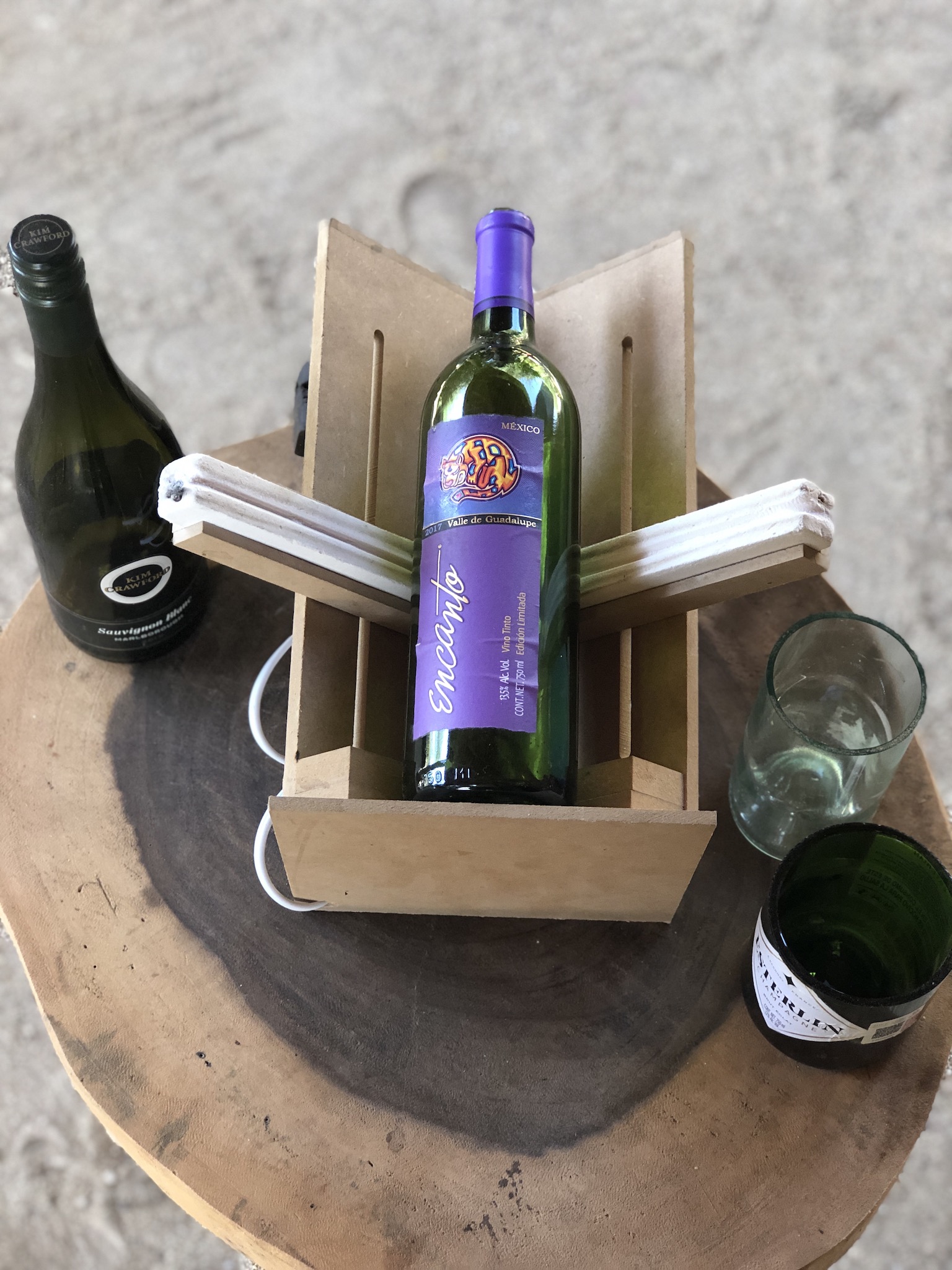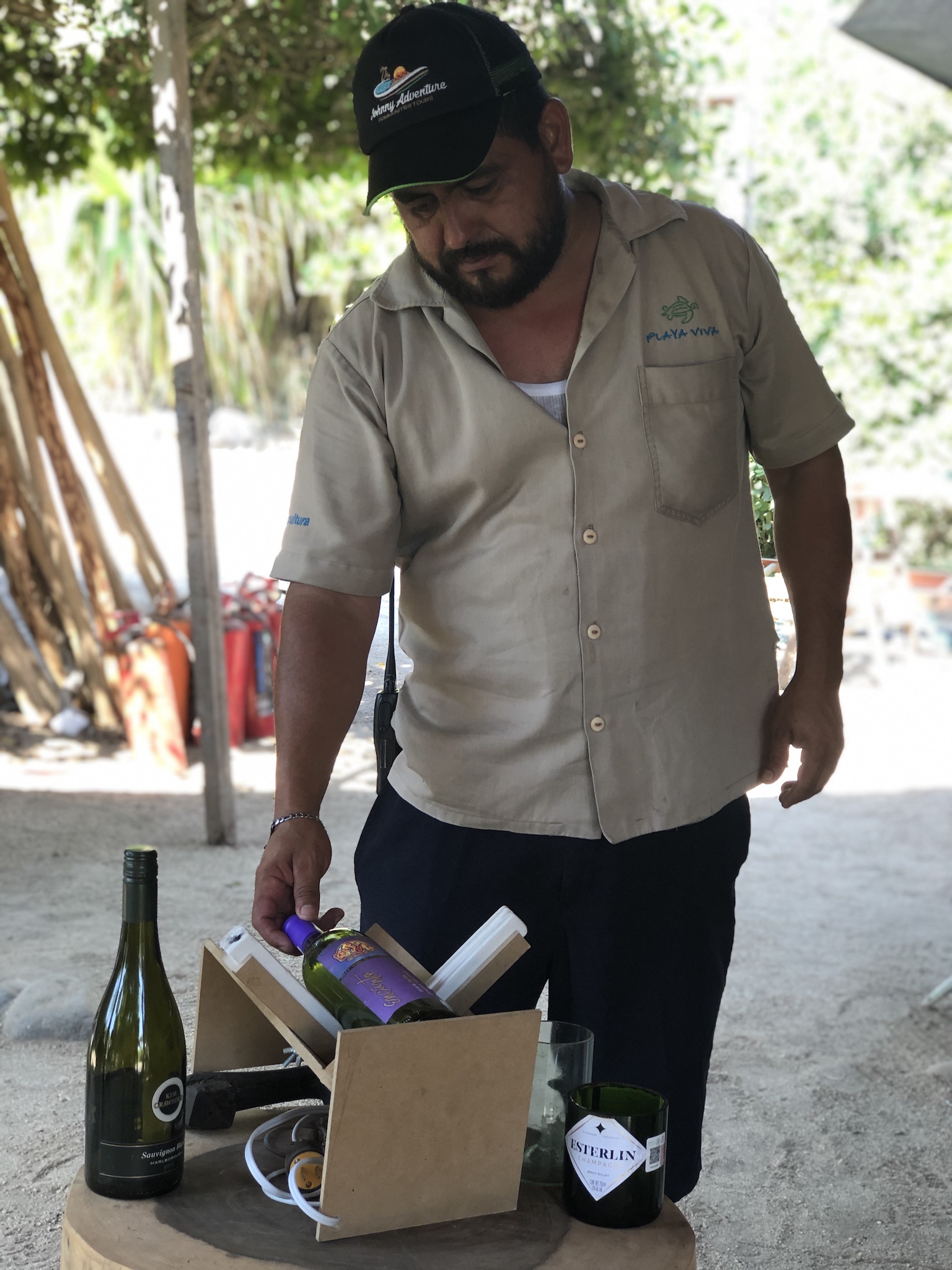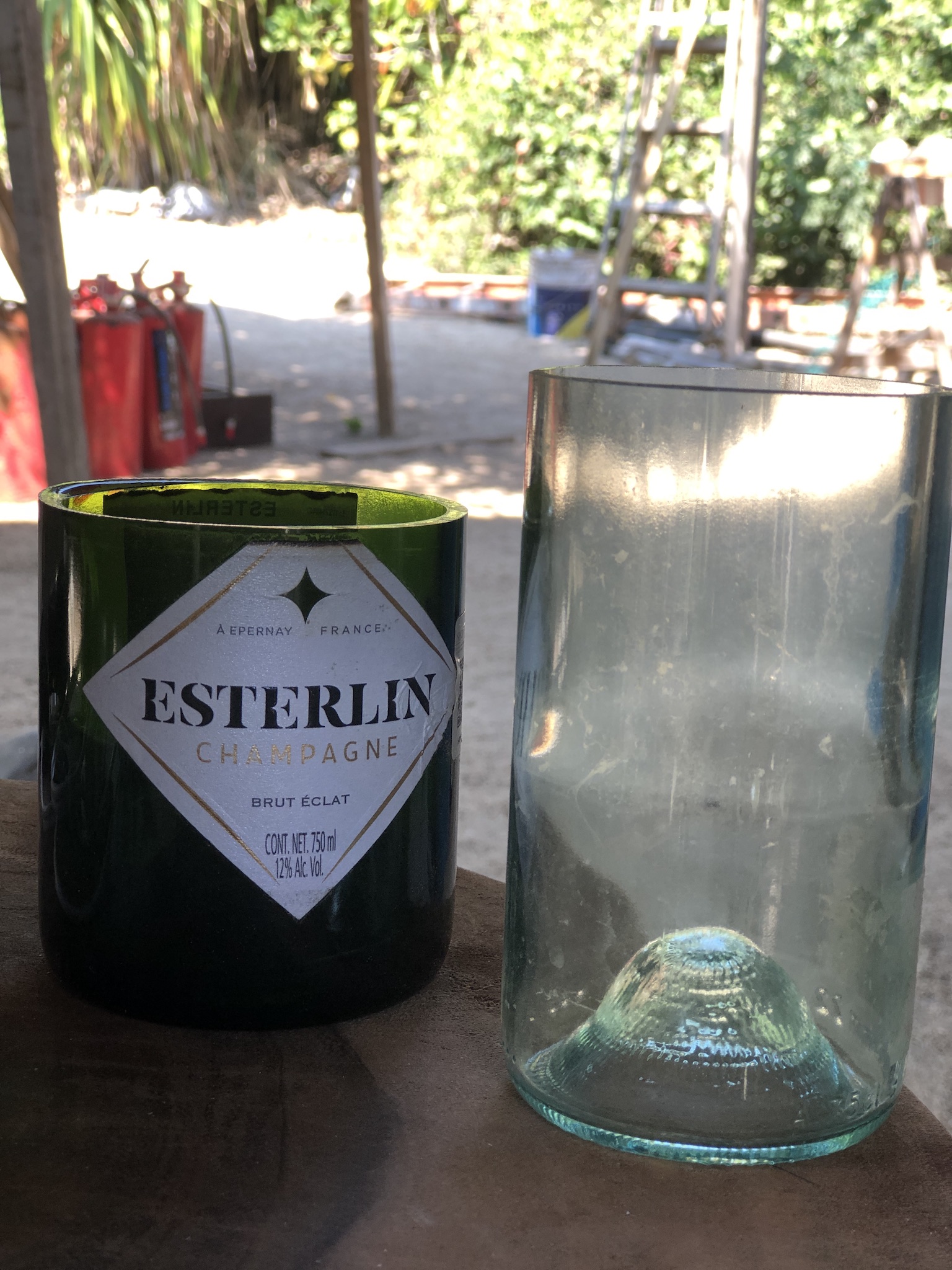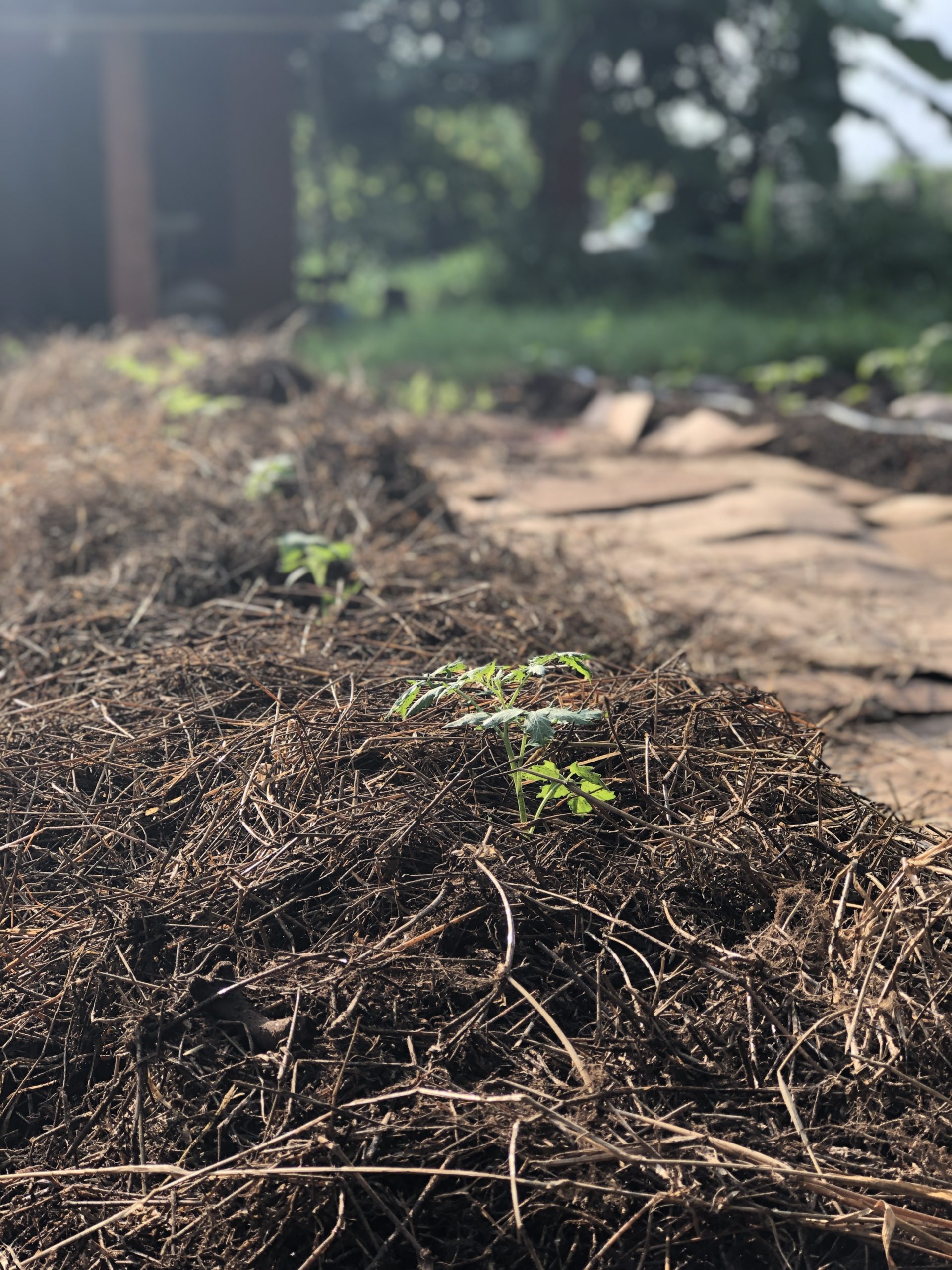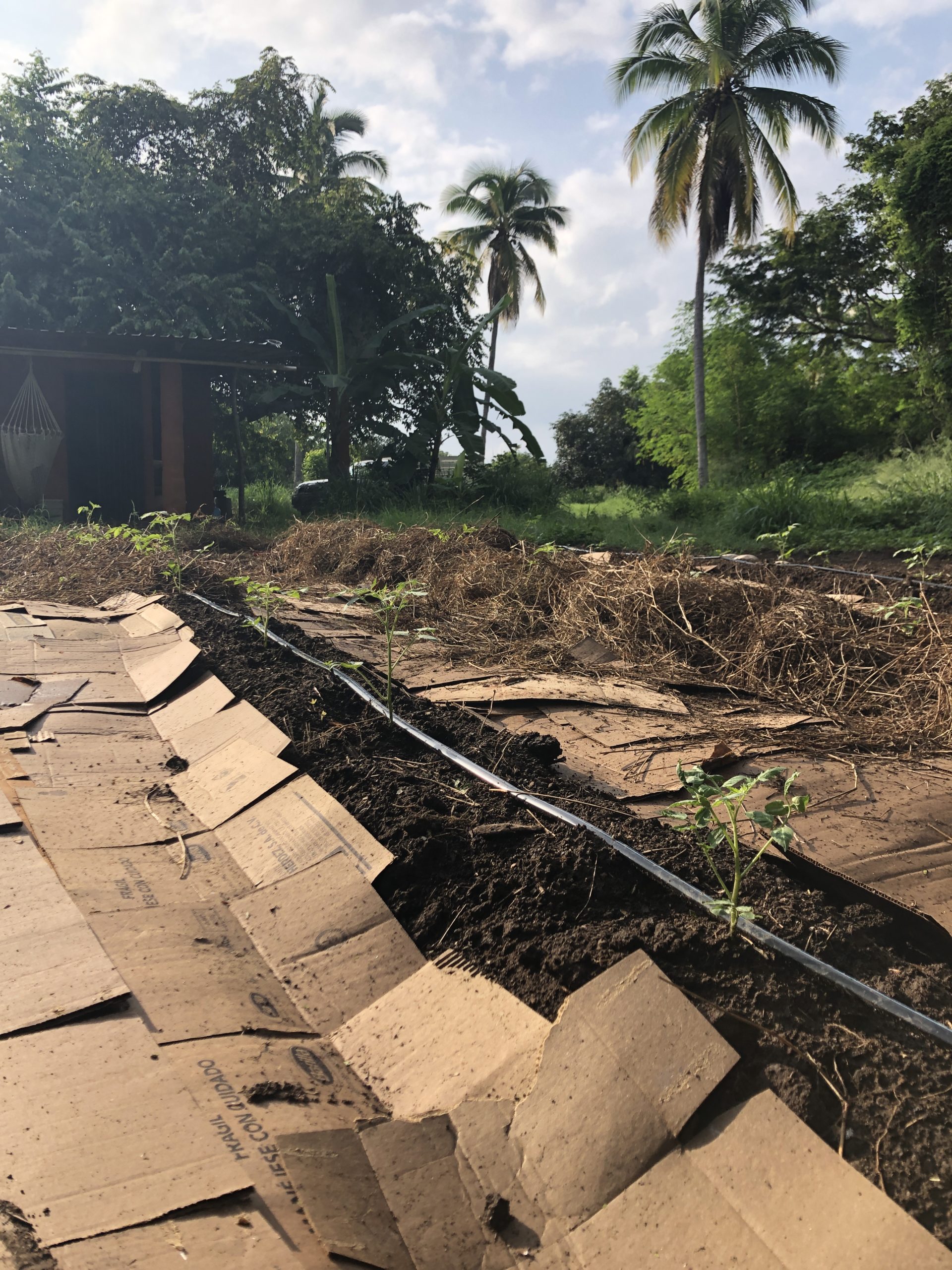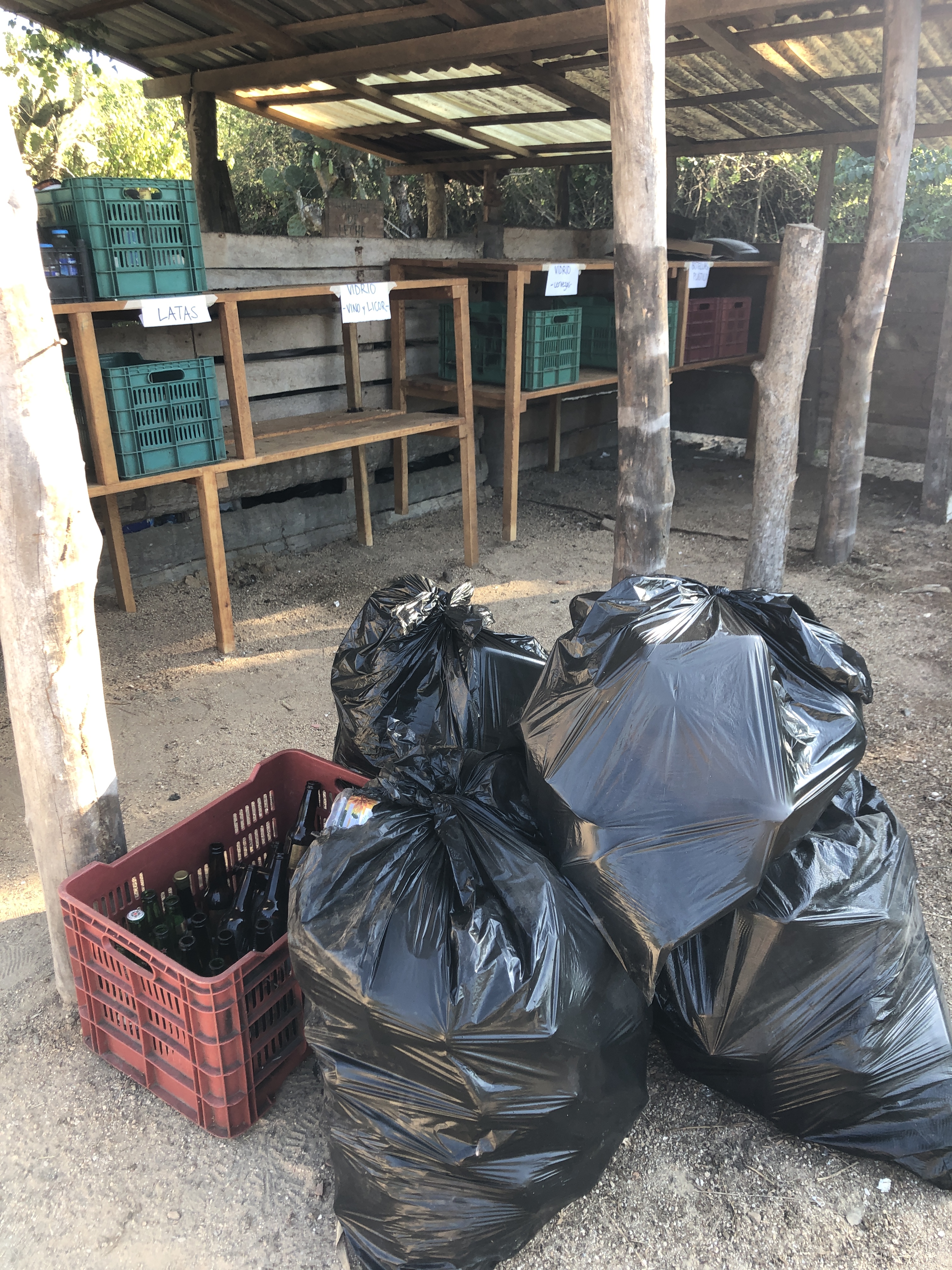We jumped feet first (literally!) into our own trash!
We decided that 2020 was high time for Playa Viva to revisit our own waste streams inside the hotel. Using one of the most important permaculture principles, apply self-regulation and accept feedback, I spent three consecutive days sorting our waste with the intention of understanding what we were producing, in what quantities, and thinking deeply about how we could reduce and reuse some of the things we were throwing away.
Permaculture is about evaluating what is already in place so that it can be made more efficient and effective for all involved parties. So where does our trash come from? First, the kitchen. As a regenerative hotel, we want to provide our guests with a food experience that meets both their values around farm to table and their dining expectations. Sometimes that means we buy ingredients to enhance our local production and offer the tropical flavors our guests are looking for during their stay. But at what cost? Does the vegetarian option of Mexican-grown oyster mushrooms mean we ignore the truth that a dinner portion serving requires three square feet of styrofoam packaging? When local milk production is running low, do we sacrifice our ethos and buy the mass-produced milk that comes in a non-recyclable Tetra Pak? These decisions force us to strike a balance between service expectations of tourism and conscious decisions regarding regeneration.
So, let’s evaluate. What did we find in our trash, and how can we apply a second permaculture principle, produce no waste, to our attempt to reduce our footprint? First, as recently as late 2018, purchased kitchen ingredients were coming into the hotel in your typical plastic grocery bag. This one was easy. We pulled reusable bags out of our kitchen “bodega” (pantry) and asked our vendors to bag food products only when we arrived using our own bags. Sure, it added five minutes to the delivery time, but who doesn’t appreciate the opportunity to move a little bit slower in their day sometimes?
One of the biggest contributors to our waste stream is alcoholic beverages. Now, you’re on vacation, we’re not saying don’t endeavor. As a regenerative resort, we take on the responsibility to find a new use for the glass bottles left behind from a relaxing sunset dinner or a beach bonfire. So, we bought a glass cutter and have started to turn wine bottles into glasses to be used at the hotel. Square glass bottles, from libations like local Mexican tequila, are stored on the permaculture farm to be used in future natural building projects.
The cardboard in which these products arrive is also destined for the farm where it is used to line paths between garden beds as a means of weed suppression and soil development. In our climate, the cardboard breaks down in three months and helps add nutrients to our otherwise sandy soil. When and if you try this in a temperate climate, throw lots of leaves and grass clippings on top of the cardboard (making it a bit less unsightly) and expect the decomposition process to take closer to 9 to 12 months.
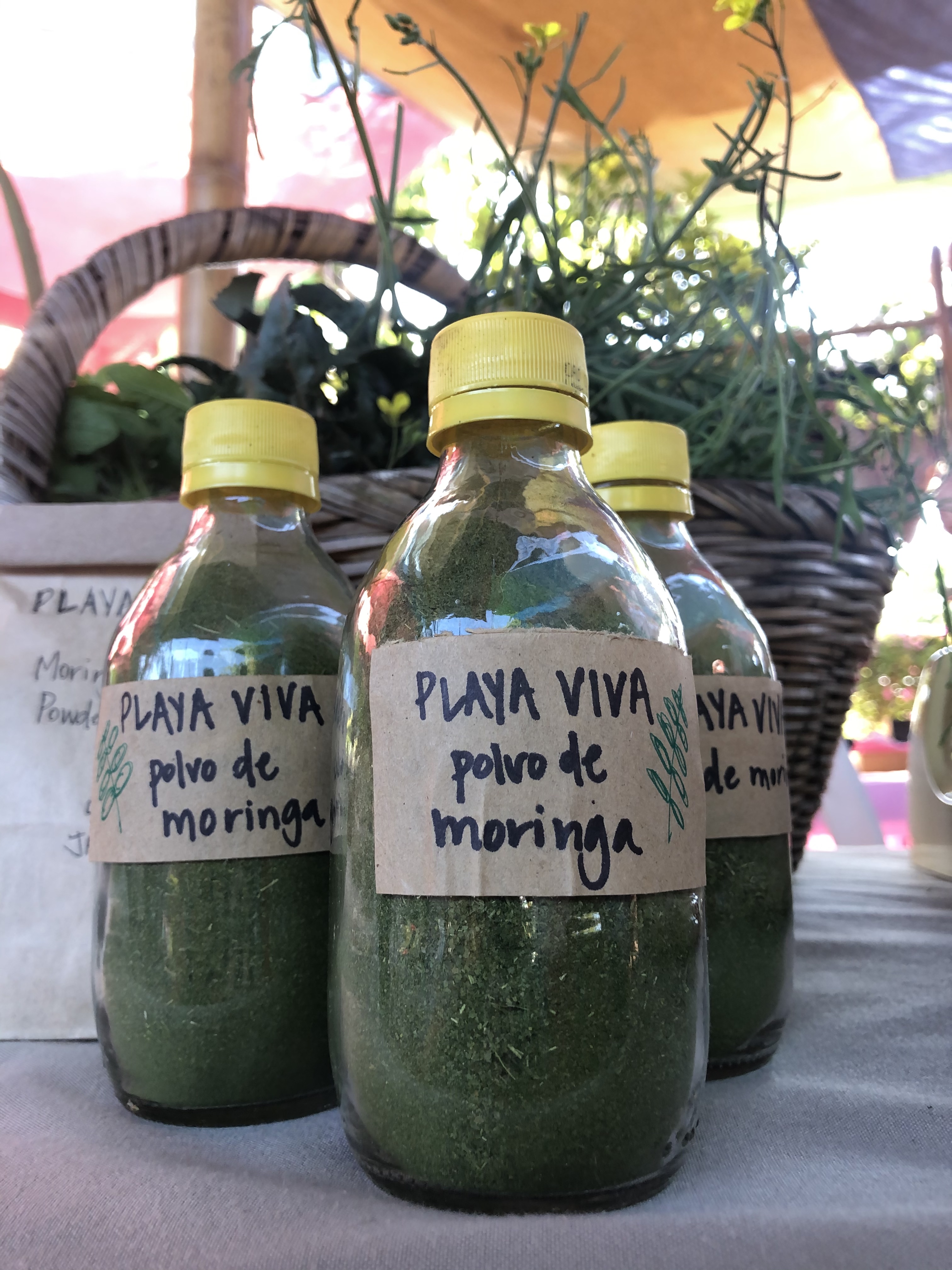
As you may know, our permaculture team heads to Eco Tianguis every Saturday. This gathering space is a farmers market, a local craft market, a small concert and so much more. It is also a space where community members can drop off recyclable materials and trust they will find their way to the correct distribution center. Dedicated Playa Viva volunteers sort through our hotel recyclables and are responsible for seeing that glass, plastic and aluminum move to the market each Saturday. Volunteers also sort through what others drop off at the market to see what we can bring back to Playa Viva to be reused, instead of recycled. (If you’ve purchased farm-produced moringa powder in the Playa Viva boutique in recent weeks, you’ve helped to reduce the amount of waste that stays here in Mexico. Please try to reuse the glass bottle several times over once you return back to wherever you call home.)
From a western perspective, it is sometimes hard to understand that the whole world does not recycle, but more often than not, recycling services are not available to the communities that want them the most. In Juluchuca, key members of our community are working tirelessly to move plastic from the landfill to a distant recycling center through the Juluchuca Limpio program. Our internal efforts to creatively reuse waste products diverts some of what cannot be recycled. But there are still limits.
So what can’t we recycle?
Broken glass, which unfortunately accumulates substantially at the hotel – about 10 gallons of broken glass every two weeks. We are storing it for now, with the hopes that an artsy volunteer will use the clay and glass pieces to do some mosaic work with the school children in town.
Toilet paper and other waste from guest rooms at Playa Viva. This one is a bit harder to reduce and/or eliminate, but we are making efforts to collect the waste from all rooms in just one plastic bag, instead of producing a partially filled plastic bag from each room separately. Tetra paks are not recyclable in Mexico yet, and until they are, it is the responsibility of our kitchen team and our food production team to think through ways of growing or processing local ingredients into the products we would otherwise have to purchase in this non-renewable resource.
Being able to recognize positive and negative feedback loops within a system is crucial within project development. There is no real end to this type of self-regulation. To date, the work to evaluate and reorganize our wastestreams has fallen to the Permaculture Team and our Executive Chef; and now, it is the responsibility of the leaders of each of these departments to discuss, inform and work with other team members at our hotel. In creating a collective consciousness around the waste being produced at the hotel, and the ways in which we can reuse some of the materials coming in, we carve out opportunities for this information to permeate into the communities where we live.
 Amanda Harris is the Permaculture Manager at Playa Viva. Originally from Maryland, she made her way to Juluchuca by way of Nicaragua, Costa Rica, Southeast Asia, and most recently, a beautiful, diversely planted “holler” in West Virginia.
Amanda Harris is the Permaculture Manager at Playa Viva. Originally from Maryland, she made her way to Juluchuca by way of Nicaragua, Costa Rica, Southeast Asia, and most recently, a beautiful, diversely planted “holler” in West Virginia. 

